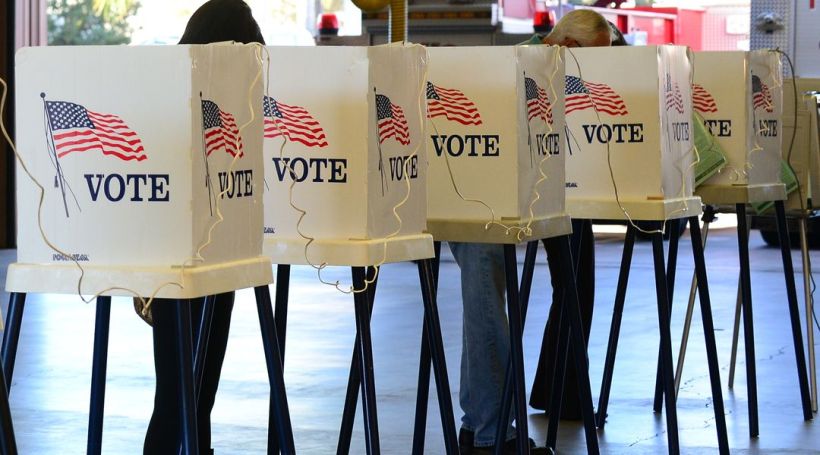 The Role Citizens Have in the Political System
The Role Citizens Have in the Political System
Franklin D. Roosevelt once said, “Let us never forget that government is ourselves and not an alien power over us. The ultimate rulers of our democracy are not a President and senators and congressmen and government officials, but the voters of this country”. That statement is still incredibly relevant to this day. As citizens of the United States, we are strongly urged to participate in the political system; after all, it is a privilege. Political culture is a set of beliefs and traditions that are shared by society, meaning we have faith in democracy, freedom of speech, and individual rights. You gain these values through political socialization, which is heavily influenced by those you come in contact with (Gitelson 187). Americans can participate in the political system by merely learning about the overall structure of government and policies, by voting, as well as protesting, and the continuation of learning and keeping up with political issues.
Americans act on their emotions and opinions by participating in the political system. “Politics involves the process by which decisions are made” and it should not be taken lightly (Scarpelli 1). Those with strong political participation include “voting and learning about politics, to engaging in efforts that directly affect the structure of government, the selection of government authorities, or the policies of government” (Gitelson 201). The more information we have, the more willing we are to participate. Americans can participate in the government in many ways, by “discussing politics with family and friends and by following campaigns, elections and other political events on television and in the newspaper” (Gitelson 201). During my senior year, I decided that I did not want to be in the so-called dark any longer about the issues around the election. I wanted to know what my peers, family, and friends were actually talking about. I took it upon myself to get educated. I started little by little to do my research, compare sources, and make opinions based on what I learned. I read the information, watched the presidential debates, and have done the research that I needed to do to. I felt like it was my responsibility as a United States citizen to become aware of the issues on the ballot and to know for whom I am voting for. Along the way, I started discussing politics with my friends and family, and now, I feel more aware of the issues and controversies.
Taking it a step further, you can also participate by writing letters to your congressmen and senators about issues you care about and issues that you want to have changed. Some citizens even participate in interest groups. California has a wide range of issues that have been debated and struggled over for years, including energy, the environment, healthcare, and education k-12. For example, with regards to the issue on the environment, there are several interest groups such as: California League of Conservation Voters, California Wilderness Coalition, and the Planning and Conservation League (California). The Greenhouse Effect, or the warming of the planet, suggests that there is a “buildup of gasses in the atmosphere that prevents the sun’s heat from escaping” (Scarpelli 10). This is a serious issue in California as our state is the world’s “ninth largest emitter of greenhouse gases” (Scarpelli 11). In addition, citizens can participate by means of civil disobedience, or refusing to obey the law through sit-ins and boycotts. Some citizens are unable to participate in the political system because of things that are out of their control. Examples include threats of violence or being excluded; like African Americans in the South who were excluded from politics until the 1960’s (Gitelson 202). Work or family matters may overrun their lives and leave no time for such involvement. Some people even believe that “their participation will have no impact on government and are satisfied with how things are and therefore feel they have no reason to get involved” (Gitelson 202). These two sources wrestle with the same idea: we must get involved and participate in the government if we want to see change. We can no longer just sit around and wish for someone to do it for us. Donating to a campaign, or running for political office are two other ways of participating in the government.
To sum up, politics is the process by which choices are made, and it is clear that not just in California, but for the entire nation, there are countless issues to be talked about, debated, and rallied for. Citizens participate in the government by means of voting, educating themselves, and getting involved in rallying, joining an interest group or even running for office. We have various “interests competing to obtain government policies beneficial to their needs” (Scarpelli 18) and we as citizens should not just inactivity participate in the government. We all have a political privilege, civic duty and opportunity to make a change, and a difference.
Works Cited
“California Interest Groups.” California Voter Foundation, http://www.calvoter.org/voter/politics/groups.html.
Gitelson, Alan R., Robert L. Dudley, and Melvin J. Dubnick. American Government: Myths and Realities. N.p.: n.p., n.d. Print.
Scarpelli, Craig. California in the American System. N.p.: McGraw Hill, 2012. Print.